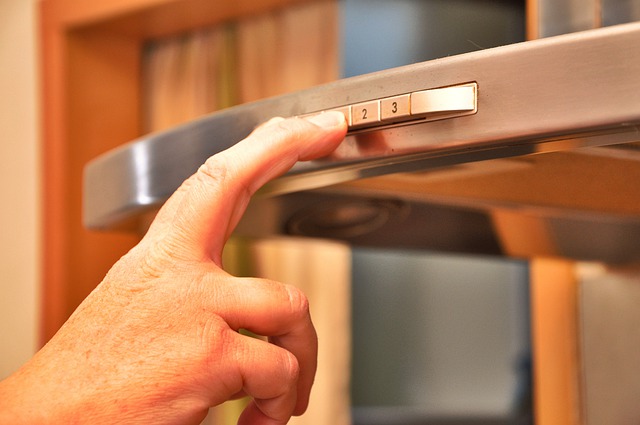Following NFPA, “Standard for Ventilation Control and Fire Protection of Commercial Cooking Operations,” it is now mandatory that you be trained, certified in the field, and “certified” to clean hoods and ducts at commercial kitchens.
Table of Contents
Kitchen Hood Cleaning
Cleaning the kitchen exhaust hoods of commercial kitchens is mandated by the government and is enforced by fire inspectors across The USA and Canada. The MFS Trade School that teaches you all you should be aware of to begin the business of your choice, “Kitchen Exhaust Hood Cleaning Business.”
Learn everything from how to complete the job according to NFPA Code 96 to what equipment, tools, and materials you’ll need for your business. From marketing and estimation and how to source schools funded by government and commercial projects.
Kitchen Exhaust Hood Cleaning – A Recession Proof Business
Cleaning the exhaust hoods of restaurants is a reliable business since all restaurants across the nation must regularly clean their hoods. The grease left from the cooking process builds up that it is a fire risk for the restaurant.
So, fire inspectors from both the USA and Canada will be inspecting the exhaust hoods of commercial kitchens’ exhaust systems to ensure they are clean before the accumulation of grease up. So long that restaurants cook food, the industry will continue to exist regardless of whether the economy is down or flourishing.
· Certification Requirements
To be certified, first, you need to locate a reliable and reliable Hood Cleaning School, preferably one that teaches according to CHDCA (Certified Hood and Duct Cleaners Association) rules and regulations.
The CHDCA and all schools for cleaning ducts and hoods associated with it provide training and certifies based on NFPA 96 standards. The NFPA (National Fire Protection Association) 1996 is a set of codes and standards that govern vents, hoods, and other types of ventilation control and fire protection for commercial cooking facilities such as restaurants.
These are the rules that fire marshals must adhere to, and commercial kitchens must follow.Here are a few extracts from the NFPA 96, which you need to know to be certified as a vent cleaner and hood.
· General Requirements
Cooking Utensils used in the process that yields smoke or grease-laden fumes. Must be fitted by an exhaust mechanism that is compliant with all requirements for equipment and performance that are in the standard (NFPA 96).
The provisions of this standard must maintain all equipment and performance at all times during the operation. Mainly the following equipment should be kept in an excellent operating state:
- Cooking Equipment
- Hoods
- Ducts (If Appropriate)
- Fans
- Fire Suppression Systems
- Energy Control Or Special Effluent Equipment
- The Airflow Must Be Maintained.
Equipment for cooking is used in mobile, fixed, or temporary concessions, like buses, trucks trailers, pavilions structures, tents, or other types of enclosures with a roof. Must conform to this standard unless the entire or a portion of the system is exempted by the authority in charge (i.e., fire dept.)
A drawing(s) for the exhaust system’s installation and a copy of operating instructions for subassemblies and components used in the system of exhaust and electrical schematics must be made available on the premises.
· Cleaning
Hoods and grease removal devices, fans, vents, and other equipment should be cleaned to the bare metal at regular intervals before the surfaces become significantly contaminated by oily sludge or grease.
Once the exhaust system has been cleaned to pure metal, it must not be put undercoating with powder or other material. Every part of the exhaust system should be examined by a certified, certified, and trained business or person(s) approved by the authority with jurisdiction.
- Cleaning the metal to its bareness does not mean taking the paint off the painted part of an exhaust.
- After inspection, if it is discovered to be contaminated by the grease-laden vapors that have accumulated, all exhaust systems must be cleaned out by a trained, qualified, and certified business or person(s) that is approved by the authority with jurisdiction.
- If a vent cleaning service is employed, a document showing the inspection date or cleaning should be maintained in the building. When the cleaning is complete, the contractor who is cleaning the vent will place in the kitchen area a label showing the date the area was cleaned and the name and address of the service company. It should also mark areas that have not been clean.
- Other flammable or flammable cleaning products should not be used.
- As you begin cleaning, any electrical switches that may accidentally be activated must be shut off.
- Parts that are part of the system for preventing fire must not be made inoperable when cleaning is completed.
- Be careful not to use cleaning chemicals on fusible connections or other devices that detect an automatic fire extinguishing device.
- After the cleaning process is completed, all electronic switches and system components are returned to a functional state. Access panel (doors), as well as cover plates, should be replaced. Dampers and diffusers must be placed correctly to allow for airflow.
This is not the National Fire Protection Association’s complete or official statement regarding the subject matter that is only represented through the standards in their entirety.
What Makes the Restaurant Kitchen Exhaust Hood Cleaning an Excellent Business Idea to Begin?
ALL restaurants require the cleaning of exhaust hoods, an economics-proof business, but the cleaner must be a certified company! That means restaurants are always looking for your help since they cannot do it themselves!
Another benefit is that it’s generally performed at 10 pm after the restaurant has closed. It’s an excellent part-time or full-time venture. You can manage from your house or van without needing an office or employees.
